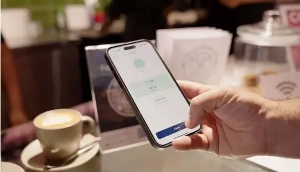A Swiss-South African start-up has introduced Toco, a digital currency backed by carbon credits, allowing users to make everyday transactions while contributing to carbon reduction efforts. The initiative aims to integrate climate-conscious spending into daily financial transactions.
Toco users can use the currency to pay for goods or transfer funds, with an option to “retire” Tocos—permanently locking away corresponding carbon certificates to offset emissions. The currency is already accepted at around 50 retailers in Switzerland and Denmark. One Toco, representing the removal of one metric ton of carbon dioxide, is currently valued at approximately €26.
Innovative Approach to Carbon Markets
“We designed this initiative so that it can be a transactional currency, usable on a day-to-day basis,” said Paul Rowett, co-founder of Toco. “The magic of an individual paying for lunch in Toco and creating demand for decarbonisation is quite a magical concept.”
Rowett believes this novel system offers a climate solution that does not hinder economic growth. “The problem that causes climate change is inherently built into our economic system,” he explained. “Carbon emissions are embedded in our economy, and we don’t pay for them. It’s free to emit, and economic growth in our capitalist world is fundamentally important.”
The Carbon Reserve, a Swiss-based non-profit chaired by Toco’s founders, oversees the project. Funds from Toco purchases are used to acquire carbon removal certificates from projects such as forest conservation, renewable energy, and direct air capture.
Linking Money to Carbon Removal
The idea of integrating money with carbon removal is not entirely new. Carbon credits were institutionalised in 1997 with the United Nations Framework Convention on Climate Change (UNFCCC), and in 2005, the EU established the Emissions Trading System (ETS), covering 40% of its greenhouse gas emissions.
“[Carbon credits] have never been seriously considered as a currency in official policies of large organisations or governments,” said Steffen Dalsgaard, climate economy researcher at the IT University of Copenhagen. “However, some scholars speculated a decade ago that it could, in theory, come to this. [Carbon emissions] could be a new standard of value for money, like the gold standard used to be.”
Toco claims to incentivise carbon removal by integrating it into financial systems. “This could fundamentally change the economic system,” said Rowett. “The underlying value would no longer be debt-based, as with fiat currency, but something essential to our planet’s survival.”
Challenges and Skepticism
Unlike regulated compliance markets such as the EU ETS, Toco operates in the voluntary carbon market, where companies and individuals opt to offset emissions. Independent organisations like Verra and Gold Standard issue carbon removal certificates, serving as proof of carbon sequestration.
Toco employs a permissioned blockchain to ensure transparency and prevent anonymous transactions. “We’ve taken the positives of blockchain while discarding elements we disagree with, such as anonymous money transfers. We believe any value transfer should come with security,” said Rowett.
However, financial experts remain cautious about the initiative. “These coins are not the answer to our prayers to contain climate change,” warned Emilios Avgouleas, a specialist in international financial markets at the University of Edinburgh. “They multiply financialisation of a common good like carbon certificates, adding volatility to both markets.”
Avgouleas highlighted potential risks, noting that volatility in the token market could destabilise carbon certificate prices. “Most tokenisation projects create serious links between the token and the underlying asset. Any adverse price impact on the token market is immediately transmitted to the carbon certificate market.”
Additionally, concerns have been raised about the reliability of carbon credit verification. “Critique has been levelled against carbon credits and markets numerous times, and their verification mechanisms frequently fall short,” Dalsgaard noted. A study by the German Oeko Institute found that fewer than 16% of investigated carbon credits resulted in actual emissions reductions.
Despite these concerns, Toco is pushing forward with its expansion plans. “If every working European purchased one coffee a day using Toco, it would generate $50 billion in demand for carbon mitigation assets,” said Rowett.
With approximately 1,000 users in Switzerland and Denmark, the start-up aims to scale its impact across Europe, advocating for a financial system that directly integrates climate action.

